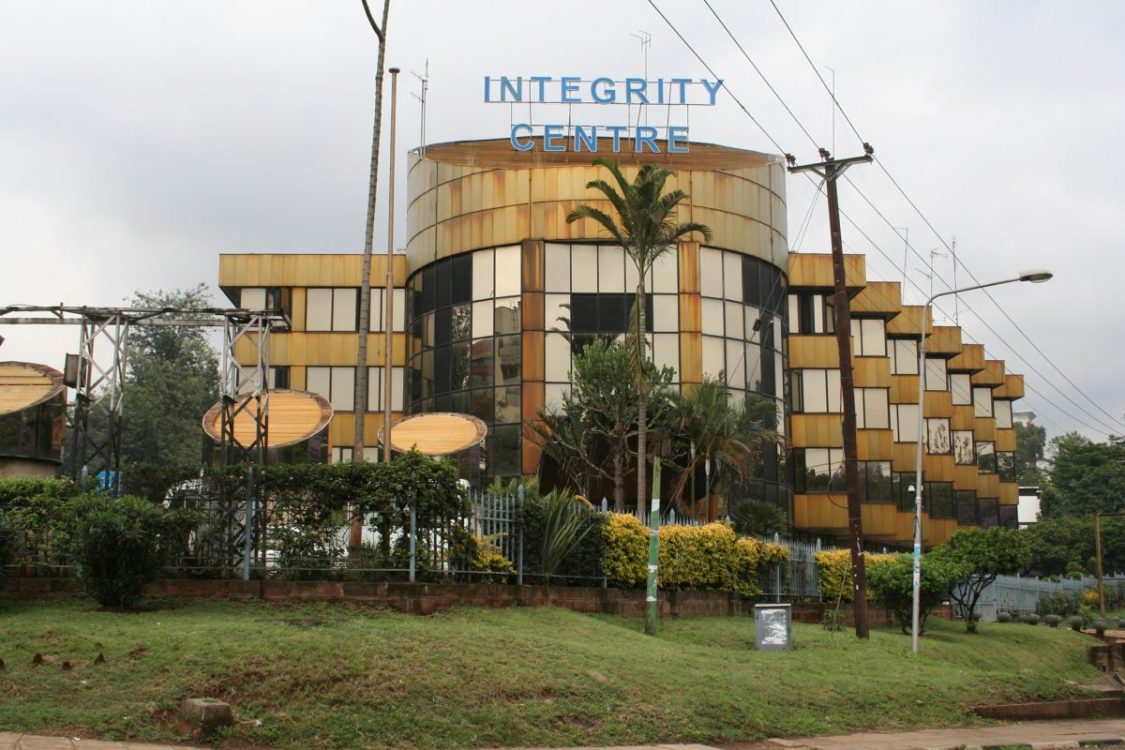EACC now traces Sh6.6b illegally acquires assets

The Ethics and Anti-Corruption Commission (EACC) traced illegally acquired and unexplained assets with an estimated value of Sh6.63 billion, and assets worth Sh3.8 billion recovered in the last one year.
The assets, recovered through court proceedings and out-of-court settlements, include pieces of land belonging to the Kenya Airports Authority (KAA) Sh2.32billion, Egerton University (Sh1.6billion), Agricultural Training Centre Nakuru (Sh1.2 billion) and County Government of Kwale (Sh370 million).
Others are the Kenya National Highway Authority (KENHA) land in Nakuru valued at Sh2.01 billion that was recovered from Hillary Kipkorir Mwaita, and Sh440 million Agricultural Development Corporation land in Tigoni measuring 30 acres that was recovered from Major Gen (Rtd) Dedan Njuguna Gichuru.
The EACC yesterday presented its Annual Report for the Financial Year 2022-23 that provides details of anti-corruption activities undertaken and achievements realized; information relating to the enforcement of ethics and compliance; relevant statistical information; and challenges encountered.
According to the report, the EACC also conducted proactive investigations which averted a possible loss of public funds estimated at Sh4.74 billion.
Stopped Ghost workers
The Commission, for example, stopped the payment of Sh2.5 billion to 105 ghost workers between the years 2016 to 2022 by the National Museums of Kenya.
It also stopped the payment of Sh1.76 billion by Kenya Ports Authority (KPA) to fishermen whose economic livelihood was allegedly affected by the establishment of Lamu Port.
The report further states that the Commission received and processed 5,252 reports out of which 1,968 reports were within the Commission’s mandate, while on 1,745 of the complaints were advised on where to report and 523 others referred to other agencies.
Out of the 1,968 reports recommended for investigation, 31 percent were related to bribery; 19 percent to embezzlement of public funds; 12 percent to fraudulent acquisition and disposal of public property; 10 percent to unethical conduct and 28 percent to other offenses.
Some of the investigations include Sh26.72 billion irregular award of tenders for Ruiru II Water Project, Karimenu Water Project and Kitui Matuu Water Project; irregular award of contracts for the implementation of the Lake Turkana Wind Power Project and subsequent payment of Sh18.4 billion; and procurement irregularities in the tender for procurement of 37 CT Scanners worth 10.2 billion.
Others are allegations of irregular payments in the acquisition of Kenya Utalii College, Coast Branch at a cost of Sh8.5 billion and allegations of irregular disposal of land measuring 139 acres in Makongeni, Nairobi worth Sh8 billion by the CEO Kenya Railways Staff Retirement Benefits Scheme (KRSRBS).
Sent to DPP
During the period, the Commission finalized and forwarded a total 97 investigation files on corruption and economic crimes to the Director of Public Prosecutions for review.
Out of these, the Commission recommended 74 case files for prosecution, one for administrative action and 22 for closure. A further 61 investigations files on violations of Chapter Six of the Constitution and Leadership and Integrity Act, 2012 were finalized with various recommendations.
The Commission had 214 cases on corruption, economic crimes and unethical conduct pending before court as highlighted in Table 2.6.
A total of 23 applications were filed for preservation of assets valued at approximately Sh886 million, according to the report, and orders were granted.
They include Sh537million from Michael Auka Ajwang of Hydeout Riviera Limited against Nairobi County for the transfer and/or disposal of 11 motor vehicles, three motor cycles and nine parcels of land.
During the review period, the Commission carried out 155 random and targeted integrity tests within public institutions, namely National Police Service (NPS), Nairobi City County Government, National Registration Bureau, Kenya Revenue Authority (KRA), Ministry of Lands & Physical Planning, National Government Administrative Offices (NGAO), County Government of Kiambu, Department of Survey, County Government of Kajiado among others.
Out of the 155 tests, 134 failed, 14 passed and seven were inconclusive. For the officers who failed, the Commission recommended administrative actions to the respective institutions.
The Commission filed applications and obtained 1,185 warrants for inspecting or searching bank and mobile phone money transfer accounts, premises, vessels and vehicles in respect of persons or associates suspected of engaging in corruption, economic crimes or related offences.
The Annual Report includes a description of activities and Financial Statements of the Commission.
In an effort to enhance institutional and personal integrity, the Commission undertook systems reviews and finalized examinations reports at the Moi University and Masinde Muliro University of Science and Technology.
Similarly, EACC conducted Corruption Risk Assessments in Bomet County Executive, County Assembly of Siaya, Siaya County Executive, County Assembly of Bomet and Public Procurement Regulatory Authority (PPRA).
The EACC CEO Twalib Mbarak also said the Commission, in line with its mandate to educate and raise public awareness and build capacity of several sectors in the fight against corruption, conducted 97 Corruption Prevention Committee (CPC) trainings in ministries, departments, agencies and county governments reaching 1,787 participants.
The Commission also sensitized community and professional networks reaching 968 participants.
In addition, the Commission implemented programmes to ensure compliance with ethical standards and practices as provided under Chapter Six of the Constitution and related laws.
“The Commission also facilitated the signing and commitment to the Leadership and Integrity Code for 2,727 state officers and also rolled out integrity compliance capacity-building programmes targeting State and Public Officers,” Twalib said.
EACC however said during the period they encountered a number of challenges that hampered effective implementation of its mandate key among them, the heightened political environment arising from the general elections, inadequate budgetary allocation and delay in disbursement of the exechequer.
The Commission, in enforcing Chapter Six of the Constitution issued 253 advisories, 22 cautions and 41 notices to public entities and persons for violation of Chapter Six. The advisories were issued on management of the existing staff, new recruitments and pending bills in County Governments following the new administrations that were ushered in after the August 2022 General Elections.
Others were on adherence to Parliamentary Service (Constituency Offices) Regulations, 2005 on opening of Constituency/County Offices and recruitment of staff; rampant falsification and forgery of academic certificates; conflict of interest, failure to protect public resources and nepotism.
The report further stated that the Commission received and processed 7,908 integrity verification requests from different institutions and individuals.
Out of these, 3,563 were requests from National Government, 4,332 from County Governments and 13 from private institutions.
Out of the 7,908 individuals, the Commission provided information on 60 individuals who were found to have contravened Chapter Six of the Constitution. In addition, the Commission received 64,003 self-declaration forms in line with Section 12A of LIA, 2012.
The Commission is also recommending the amendment of the Anti-Corruption and Economic Crimes Act (ACECA) to allow the EACC to seek for a court order for a State Officer under investigation or charged with corruption or economic crimes to be barred from accessing their office or exercising powers of that office where the public officer is likely to interfere with investigations in any way.
The have also proposed the amendment to the Leadership and Integrity Act to allow EACC to verify and make recommendation on the suitability of candidates intending to apply to be appointed to a public entity.












